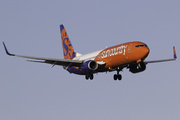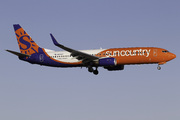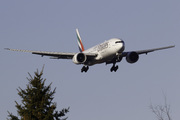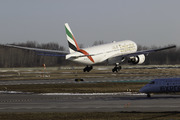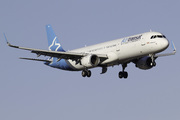Dépêches
Research and Markets: Iran Defence and Security Report Q2 2012 - Will the Iranian Crisis Be Resolved Diplomatically or Militarily in 2012?
Dépèche transmise le 3 avril 2012 par Business Wire

Research and Markets: Iran Defence and Security Report Q2 2012 - Will the Iranian Crisis Be Resolved Diplomatically or Militarily in 2012?
DUBLIN--(BUSINESS WIRE)--Research and Markets (http://www.researchandmarkets.com/research/a88e2d3c/iran_defence_and_s) has announced the addition of the "Iran Defence and Security Report Q2 2012" report to their offering.
“Iran Defence and Security Report Q2 2012”
Business Monitor International's Iran Defence and Security Report provides industry professionals and strategists, corporate analysts, defence and security associations, government departments and regulatory bodies with independent forecasts and competitive intelligence on Iran's defence and security industry.
The Islamic Republic of Iran was at the centre of the world's most pressing security crisis in early 2012, as Tehran refused to bow to foreign pressure over its nuclear programme.
A strict new sanctions regime, led by Canada, the UK and the US, was imposed on Iran in November in what some analysts interpreted as a final attempt to put a stop to the country's nuclear programme by non-violent means. The new measures targeting the banking and petrochemical sectors were imposed in the wake of a report from the UN's International Atomic Energy Agency (IAEA), which said that Iran had successfully conducted preparatory experiments that would subsequently enable it to test a nuclear weapon.
While many countries, such as China, Russia and Turkey, refused to be bound by the sanctions, other major economies, including India and Japan, followed the US lead by promising to cut back on Iranian oil imports. So while the sanctions regime may lack the force to cripple the Iranian economy, they at least appear capable of placing Tehran under severe economic pressure in 2012.
The Iranian government responded to the sanctions at the turn of the year by staging large-scale naval drills in the Strait of Hormuz, a major international sea lane, in a bid to demonstrate its capacity to block the waterway. In late 2011, Iranian state TV claimed that three new Ghadir-class submarines had been added to the country's naval fleet, bringing Iran's total of Ghadirs up to seven; however, there has been no independent verification of this. Washington made clear that it stood ready to use military means to keep the strait open to international trade. In BMI's view, Iran is unlikely to follow through with its threats, since the country's own economy would suffer most of all from such a move. Indeed, the Iranian economy is already in a poor state, with inflation running close to 25% and popular discontent with the country's economic malaise already on the rise.
Two elections look set to have a highly significant bearing on the question of whether the Iranian crisis will be resolved diplomatically or militarily in 2012. Iran is due to hold parliamentary elections in March, and with the reformist candidates unlikely to be allowed to take part the regime could face a challenge in making the elections appear legitimate, especially in light of the regional developments of the Arab Spring and the opposition protests that characterised the country's 2009 presidential poll. The election may also lead to a sharpening of Tehran's rhetoric against the US and Israel, although apparent divisions within the regime may complicate the government's stance. Also of great significance is the upcoming US election, whose timing makes military election against Iran more likely, with the Obama administration wary of appearing weak on the Iran issue.
With oil prices already topping US$113 a barrel in January, the world economy would be severely stressed by the collapse in Iranian output that a conflict might cause. No less serious are the security implications for Iran and the rest of the Middle East, with a peaceful resolution growing ever more unlikely.
Key Topics Covered:
Executive Summary
SWOT Analysis
Global Political Outlook
Challenges And Threats To Stability And Security
Security Risk Ratings
Political Overview
Domestic Security Overview
Industry Trends And Developments
Industry Forecast Scenario
Macroeconomic Outlook
Company Profiles
BMI Methodology
Companies Mentioned
- Sukhoi
- Ulan-Ude Aviation Plant
- Aerospace Industries Organization
- Ammunition and Metallurgy Industries Group
- Defence Industries Organization
- Iran Electronics Industries
For more information visit http://www.researchandmarkets.com/research/a88e2d3c/iran_defence_and_s
- 16:52 Friedrichshafen 2024 : Aura Aero présente pour la première fois ses trois appareils
- 16:25 Friedrichshafen 2024 : Duc Hélices présente son hélice Tiger-3
- 15:33 Friedrichshafen 2024 : Splash-in Aviation expose son Pétrel X
- 07:25 Friedrichshafen 2024 : Robin "toujours présent et pour longtemps"
- 07:11 Friedrichshafen 2024 : Beringer présente au salon
- 07:01Friedrichshafen 2024 : la FFPLUM dément le passage de tous les ULM 3 axes à 600kg
- 06:44 Friedrichshafen 2024 : visite d'un Pilatus PC-12 (photos)
- 17/04 Friedrichshafen 2024 : Cirrus Aircraft présente son SR G7
- 17/04 Friedrichshafen 2024 : Piper présente son M700 Fury
- 17/04 Friedrichshafen 2024 : Junkers dévoile son A50 Heritage
- 17/04 Friedrichshafen 2024 : la société E-Props présente au salon
- 17/04 Le 30e salon de Friedrichshafen a ouvert ses portes
- 15/04 Airbus : commandes et livraisons de mars 2024
- 15/04 easyJet renforce ses dessertes depuis la France vers Budapest
- 15/04 Vueling inaugure sa liaison entre Orly et Heathrow
- 12/04 British Airways ouvre les candidatures pour son programme cadets Speedbird Pilot Academy
- 12/04 Icelandair et Expedia annoncent un nouveau partenariat
- 12/04 Turkish Airlines : résultats 2023
- 12/04 easyJet annonce deux nouvelles lignes depuis Lyon
- 12/04 Le premier Embraer E190 P2F fait son vol inaugural


